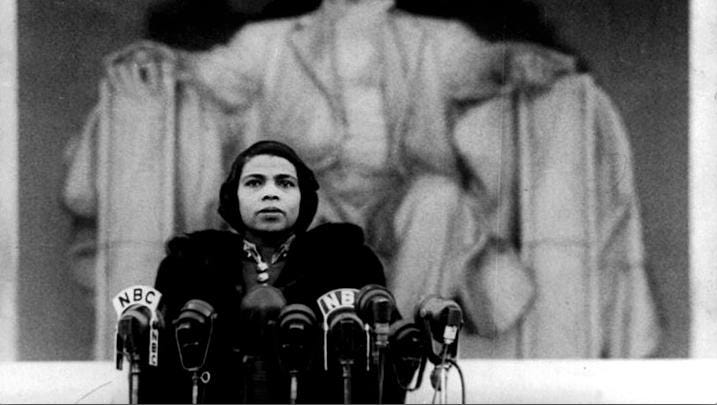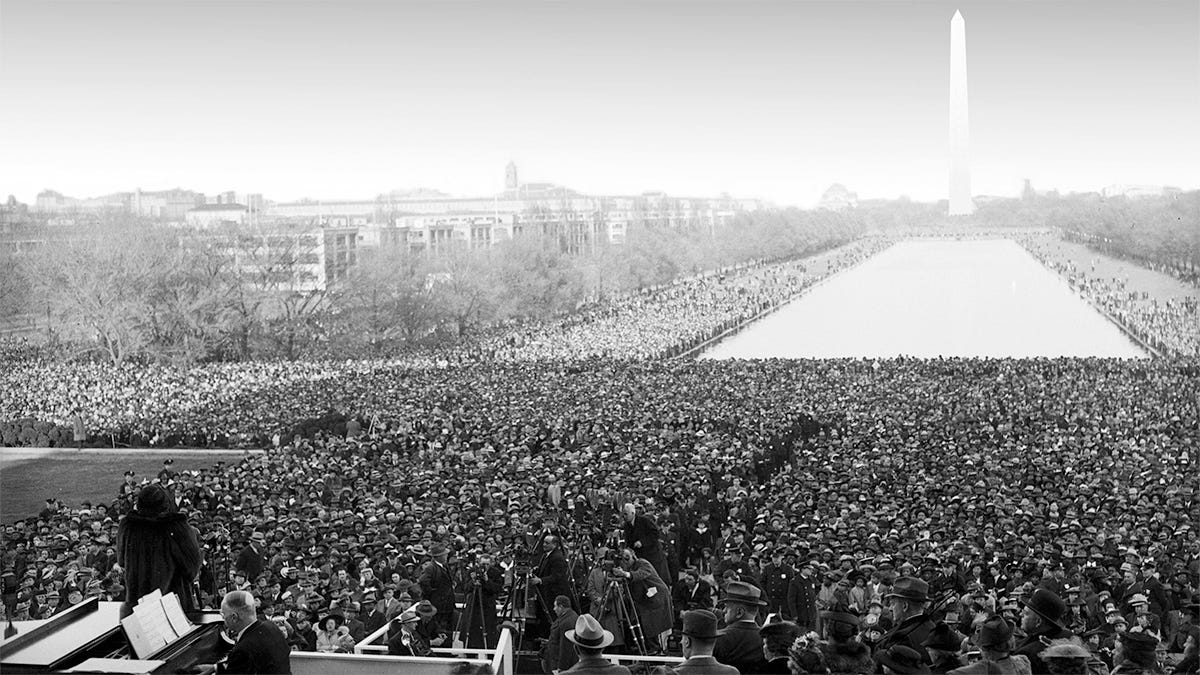Fear No Theory
According to family lore, my dad once walked into a Sunday School class where most everyone was complaining about the fact that a popular and allegedly obscene film was currently being screened in Nashville. "Have any of you seen it?" he asked. They admitted that none of them had. "Well I have," he said. "and y’all don't know what you're talking about."
My dad knew how to touch a nerve, and I loved and admired him for it. This anecdote, which seems to have formed my personality more than a little, has lately surfaced again as I’ve entered into some lively exchanges with friends and strangers. Like many Americans, I’ve found myself feeling a little estranged from folks I’ve known and trusted for much of my life in recent years. I’ve also found myself being regarded suspiciously by a handful of friends who, in other seasons, have happily vouched for me as a solid and trustworthy person. It’s a little worrying, but I also suspect and sense that, at 51, I’m being invited to enter more fully into a deeper awareness of the life I share with the world. I spend a lot of time writing and trying to help other people with theirs which ultimately, I think, involves trying to get our stories straight together. Grace Paley has a word: "The slightest story ought to contain the facts of money and blood in order to be interesting to adults. That is, everybody continues on this earth by courtesy of certain economic arrangements...Trivial work ignores these two facts and is never comic or tragic."
Please read those three sentences again before proceeding reading mine. I want to get paid, get heard, keep old friends, and make new friends like Stephen Colbert, but I don’t want to be a trivial talker strategically avoiding out-loud recognition of the facts of money and blood. I want to get my story straight. It feels good. I also want to be interesting to adults, which also feels good. In my daily effort to see clearly, stay healthy, not hurt anyone, and remain interesting to others, I have recently noted three words which, when placed together, seem to alarm many of my heretofore generally unperturbed peers with an intensity I didn’t see coming: critical race theory.
Words with which to wave away an incoming moral realization we have always had with us. But “critical race theory” is all of that and more and somehow different. The father of three of my former students recently banned it (without defining it) in my state’s public schools. While taking a moment to note that he may never see eye to eye with a man who appears to have tried to have him killed on January 6th, Mike Pence recently took a public swipe at it (without defining it). The government of Texas has also banned it (without defining it).
Like my father before me, I think it’s important to know something about what you’re talking about before you condemn, malign, or outlaw it. If you’re in need of a definition, please click the words above and pass a few minutes on Wikipedia. You might also read (or listen to) Dr. Nathan Luis Cartagena and Bradley Mason talking about critical race theory over here. BUT…..If I can’t get you to read up on it first, and you just want to hear from me, here goes. Tell your friends and family. *clears throat*….
Theory is just thinking. Critical thinking is just thinking carefully (not negatively). Critical race theory is just thinking carefully about race. Critical race theory is gospel (good news). Repent and believe it. Thank you for taking my online course.
I want to also say right away that “Critical Race Theory” names a body of work. You can see this in the Wikipedia entry, but it’s important to keep it in mind as our legislatures (and some universities) try to ban it. Did y’all ever think this day would come? The banning of thought? If you’ve made it this far and you’re upset with me and you’re about to tell someone that I embrace critical race theory, please listen closely.
I can’t embrace critical race theory any more than I can embrace a library. I’d have to read it all first. Relatedly, I can’t even critique a theory exactly. I can only address a person voicing it, one sentence at a time. Like we do with Bible verses and films and poetry and legal documents, we need to read words, mull them, ask each other what we think those words mean, feel something, change our minds, double back, feel differently, and then think it through again. Before anyone can know where anyone stands on something as broad and voluminous as critical race theory, we need to open books and cite texts. You can’t step in the same sense twice (Nehemiah 8:8). Even then when we read, say, one person’s book, we’re only talking about one critical race theorist who, as these things go, will differ from other critical race theorists. Like the Bible, it’s a collection of witnesses. Do they all say the same thing? Of course not. Read them and find out.
Somebody quoting Dr. Ibram Kendi doesn’t mean they (or anyone) has gotten to the bottom of critical race theory. It just means they’ve quoted Ibram Kendi. Was he quoted in a way that honors the full context of what he is (or was) on about? You’d have to read him to find out.
More than one person who’s come at me for speaking favorably of critical race theory has pasted a bit of screen matter in what I take to be a public rebuke for having done that. I haven’t been able to figgle out the source of the screen matter but it does include a page number:
When it appeared before me a second time, I decided to track down the book (I’d only listened to the kids’ version) and the page, and I’ve developed a habit of sharing it with anyone I imagine might be open to reading it. To my delight, getting someone to look at it has defused a situation or two (as reading even one page of thoughtful prose often can). If you’re reading this and someone’s threatened to cut you out of their will or have you fired or denied funding because they think you’re a “woke” proponent of critical race theory, I suggest you ask them to consider this image, read it twice, maybe pray about it, and then take it from there. It’s a wonderful page. I copied some words from the previous page to provide more context. Behold:
At the very least, you’ll have words to refer to. And if you can get them to take it slow, you won’t find yourself defending an unexamined abstraction which, I sometimes suspect, is mostly a placeholder for a raw sense of powerlessness at the thought that someone(s) somewhere thinks they’re racist. They might not become fans of Dr. Ibram Kendi, but they will have at least read one page of what some people think of as critical race theory. Which, I suspect, is more than can be said for the politicians and most of the pastors who are, even now, accruing cred and coin by publicly decrying it.
My fellow white people, when we let our fellow white people speak derisively of other people's thoughtfulness in our presence without challenging them, we're complicit in the terror that follows. That thing where you think you’d have behaved differently in Nazi Germany or Apartheid South Africa or the Jim Crow era? Then is now. The government of Georgia has criminalized giving bottled water to dehydrated voters. Then is now. Ignorant bliss isn’t bliss for victims of militant ignorance.
Scroll up to the top and have a look at that beautiful woman in front of the Lincoln Memorial. That’s the American contralto, Marian Anderson in March of 1939. Hear this: the Daughters of the American Revolution did not have the words “critical race theory” available as a rhetorical weapon with which to shut down the testimonies of people of color, but they did have the power to deny her the opportunity to sing in the DAR Constitution Hall. When they did, Eleanor Roosevelt gave up her spot among them and made arrangements for Anderson to perform a concert on the steps of the Lincoln Memorial for an integrated audience. Check this out.
Isn’t that something? 1939. Beauty prepares the heart for justice. And popular culture eats white supremacist terror for breakfast. I somehow think of Mike and Karen Pence enjoying a performance of Hamilton, being publicly admonished by the cast, taking it, and still maybe imagining that they might yet partner with civil society. It’s strange to watch now, a little over four years later, as they disgrace themselves anew by continuing the campaign against Black voices even when, one would think, they’d feel a little freer to stop deferring to the disgraced predator in Florida.
It’s never too late to turn away from evil. I want to try to persuade myself, my students and, if possible, the parents of my students to lean toward the witness of Marian Anderson, who braved threats to her life to lift her voice, and Eleanor Roosevelt, who made a break with white supremacist terror at a decisive moment and thereby enriched her own legacy (and watched her approval rating go up). I have another image that pairs well with the one at the top.
That’s Shelby County Commissioner Tami Sawyer of Memphis addressing the public concerning the relocation of a monument and, over time, the remains of Mary Ann Montgomery and Nathan Bedford Forrest. It’s the hard-won culmination of Sawyer’s long campaign to reclaim a public park for the people of Memphis. Behind her is George “K-Rack” Johnson, a volunteer from the Sons of Confederate Veterans, singing Dixie and threatening her. Here’s Roland Martin with the story.
It would be lovely if at least a few of the politicians, pundits, and pastors in Tennessee who, on the one hand, warn of the alleged threat of critical race theory would, on the other, publicly denounce George Johnson and those who publicly deride Tami Sawyer and threaten her life. This isn’t happening. News of George Johnson’s tirade has led to a cascade of new threats from people publicly emboldened to target her further. To my knowledge, every member of our state’s ruling party (Lee, Blackburn, Hagerty, etc.) has remained silent on the matter. These elected officials, of course, also represent their church organizations. At least for now, they will not cross “K-Rack” or risk his ire.


To review, there are people I’ve loved and respected for much of my life who now seem to be brandishing and enunciating the words, “critical race theory,” in the hope that they’ve finally named the evil that wants to make people who look like them and me and our children feel bad. It’s handy as can be and, for the conflict avoidant, it’s tempting to let it go. I know I need to not do that. I need to take it on. Perfect love casts out fear. Fear no theory.
This has been an awkward effort. If you feel compelled, please share and/or attempt your own. Thank you for your time and attention.







A couple years ago, before CRT became the lightening rod it is today, I read Kendi’s “How to Be an Anti-Racist” and found it to be a challenging book. Didn’t agree with it all but two things stuck in my mind that have nothing to do with CRT. 1) Kendi is profoundly humble man — threaded throughout the book are his confessions of the racist ideas (most he just picked up from living) that he has been repenting of as he became aware. For someone so prominent in this zone, to document his journey in such detail is remarkable. He is not an ivory tour academic. 2) I found it a strikingly optimistic book. For all that he knows from writing “Stamped From the Beginning” and his own cancer survival … this is a man who believes we can overcome racism. And he convinced me too. Where there could be a bitter, “what’s the use” attitude … I heard a man who believes we can overcome. Remarkable.
I will definitely have to read this book. The saddest thing is that what Kendi's saying about no one group having a lock on any characteristic we consider good or bad ought to be so obvious as to go without saying. It's something young children know instinctively, until we manage to screw them up with our white supremacist culture. Understanding our history without considering the role racism has played is like trying to understand the structure of the human body while ignoring evolution. Unfortunately, the politicians and clergy who're stoking this CRT hysteria aren't interested in understanding but rather manipulation, and the rank-and-file who're lapping it up aren't self-aware enough to realize that the intensity of their reaction speaks volumes about the things they know but can't bring bring themselves to admit. All they hear is "Critical" and think it means the librulz and PoC are going to subject them to weekly Maoist-style shaming circles because of their skin color.